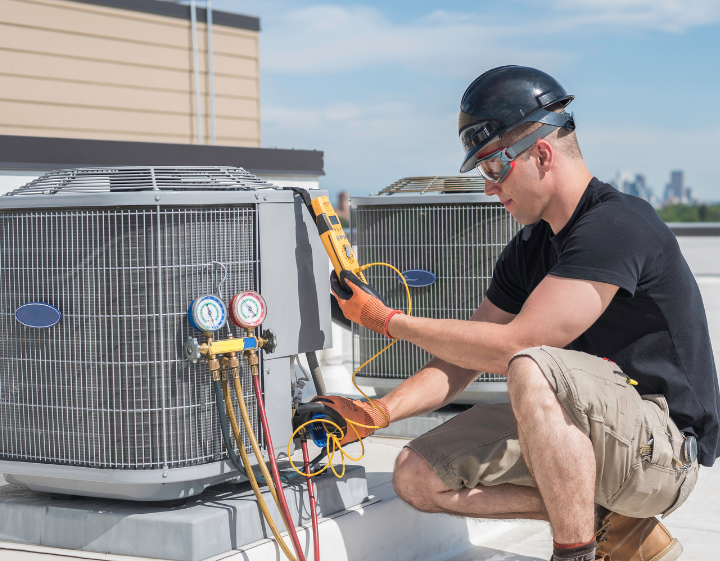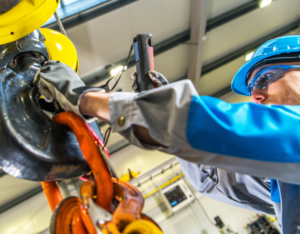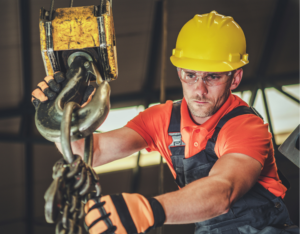Introduction
Investing in a new HVAC system is a significant financial decision that brings numerous advantages, including enhanced comfort and improved indoor air quality, which is why the steps taken after a new HVAC installation are crucial. After all, a well-functioning HVAC system ensures a cozy and healthy living environment, allowing individuals to stay cool in hot summers and warm during freezing winters. However, to fully reap the benefits of this investment, regular maintenance is absolutely crucial.
Regular maintenance is the key to protecting and maximizing the lifespan of your new HVAC system. It involves a series of preventive measures and inspections that ensure the system operates at peak efficiency. Despite its importance, many homeowners tend to overlook and underestimate the significance of regular maintenance.
Without proper care, an HVAC system can experience a decline in performance and efficiency over time. This can result in higher energy bills, inadequate heating or cooling, and even costly breakdowns. On the other hand, with regular maintenance, the system not only maintains its efficiency but also operates smoothly, ultimately saving time, money, and hassle.
In the following sections, we will dive into the practical tips on managing and caring for your HVAC investment effectively. By adhering to these maintenance practices, you can ensure that your HVAC system continues to provide optimal comfort and air quality for years to come.

Understanding the Basics of HVAC Maintenance
Maintenance after HVAC installation refers to the regular upkeep of heating, ventilation, and air conditioning systems in residential and commercial buildings. It involves a series of tasks aimed at keeping the system running efficiently, extending its lifespan, and ensuring optimal indoor air quality.
One essential maintenance task is changing filters regularly. Filters trap dirt, dust, and other particles and prevent them from circulating in the air. A clogged filter can hinder airflow and strain the system, leading to decreased performance and higher energy consumption. Typically, filters should be checked and replaced every one to three months, depending on usage and air quality.
Another crucial aspect of HVAC maintenance is duct cleaning. Over time, ducts can accumulate dirt, debris, and allergens that affect air quality and decrease the system’s efficiency. It is recommended to have professional duct cleaning every three to five years, although homeowners can perform routine visual inspections and clean accessible portions themselves.
Regular system inspections by professionals are also vital in HVAC maintenance. Trained technicians can identify and address potential issues before they become major problems, ensuring proper functioning and preventing costly repairs. Professional inspections should be conducted annually, ideally before the high-demand seasons of summer and winter.
While professional services are necessary for certain maintenance tasks, such as inspections and complex repairs, homeowners can contribute by performing some basic tasks themselves. This includes regularly cleaning debris around outdoor units, ensuring proper airflow around indoor vents, and checking for any unusual noises or smells.
Understanding the basics of HVAC maintenance is crucial for the proper care and effective management of an HVAC investment. Regular filter changes, duct cleaning, and system inspections, performed by both professionals and homeowners, play a significant role in maintaining optimal performance, extending the system’s lifespan, and improving indoor air quality.
The Importance of Immediate Post-Installation Checks
The importance of conducting initial checks right after installing a new HVAC system cannot be overstated. These checks are crucial to ensure that everything is working correctly and to identify any potential issues that may have arisen during the installation process.
One of the primary objectives of these checks is to verify that the HVAC system has been installed correctly. This includes checking that all components have been properly connected, such as ductwork, wiring, and refrigerant lines. Any errors or mistakes in the installation can result in suboptimal performance, increased energy consumption, or even system failure.
Another essential aspect of these initial checks is to verify the operation of the thermostat. The thermostat is the control center of the HVAC system and determines when the heating or cooling functions are activated. Ensuring that the thermostat is correctly calibrated and functioning properly is crucial for maintaining optimal comfort and energy efficiency in the building.
Additionally, these checks include initial performance assessments. This involves measuring the airflow, temperature differentials, and overall system functioning. By assessing these factors immediately after installation, any potential problems, such as inadequate cooling or heating capability, can be identified and rectified promptly.
Conducting immediate post-installation checks for a new HVAC system is vital to ensure correct installation, verify thermostat operation, and assess the system’s performance. By addressing any issues promptly, homeowners can maximize the efficiency, lifespan, and overall performance of their HVAC investment.
Preventive Maintenance: The Key to Longevity
Regular maintenance is crucial to ensure the longevity and optimal performance of your HVAC system. By investing a little time and effort into preventive maintenance, you can extend the lifespan of your HVAC system and avoid costly repairs or replacements.
One of the primary benefits of regular maintenance is its ability to detect and address potential issues before they escalate. Components such as belts and motors undergo wear and tear over time, and routine checks can identify any signs of deterioration. By replacing these worn-out parts timely, you can prevent them from causing further damage to the system. This not only ensures the smooth operation of your HVAC system but also protects other components from unnecessary strain.
Furthermore, regular maintenance helps maintain the system’s efficiency. Over time, HVAC systems can become less energy-efficient due to dust accumulation, clogged filters, or faulty parts. Through preventive maintenance, these issues can be identified and resolved promptly, ensuring that your HVAC system continues to function at its optimum level, saving you energy and money in the long run.
Lastly, preventive maintenance provides an opportunity for HVAC professionals to clean and inspect various components of the system. This includes cleaning coils, lubricating moving parts, and checking refrigerant levels. These tasks help improve system performance, enhance indoor air quality, and reduce the risk of system failures or breakdowns.
Regular maintenance is essential for the longevity of your HVAC system. It allows for the detection and prevention of common issues, ensures energy efficiency, and improves overall system performance. By following a preventive maintenance schedule, you can effectively manage and care for your HVAC investment, saving both time and money in the long term.
Energy Efficiency and Cost Savings
Regular maintenance is crucial for maintaining energy efficiency and reducing utility bills after installing a new HVAC system. Neglecting maintenance can lead to various small issues that, when left unchecked, can significantly increase energy consumption.
For example, dirty filters restrict airflow, forcing the HVAC system to work harder to maintain the desired temperature. This increased workload translates to higher energy usage and consequently, elevated utility bills. Similarly, clogged condenser coils reduce the system’s ability to transfer heat, leading to reduced efficiency and increased energy consumption. Thus, routine cleaning of filters and coils is necessary to ensure optimal airflow and heat transfer.
Additionally, regular maintenance helps identify and rectify other common issues, such as refrigerant leaks or faulty electrical components. Even small refrigerant leaks can cause the system to work harder to cool the space, resulting in increased energy consumption. Similarly, malfunctioning electrical components can affect the system’s efficiency, leading to higher energy usage.
By addressing these small issues through regular maintenance, homeowners can maximize the energy efficiency of their HVAC systems and keep utility bills low. It is crucial to understand that investing in preventive maintenance is a cost-effective strategy in the long run, as it helps avoid major breakdowns and costly repairs. Therefore, homeowners should adhere to a maintenance schedule and entrust the task to qualified professionals to ensure the longevity and efficiency of their HVAC investment.
Avoiding Expensive Repairs and Downtime
Regular maintenance of an HVAC system is essential to ensure its optimal performance and prevent costly repairs and downtime. By inspecting and servicing the system regularly, small problems can be identified and fixed before they become major issues.
Routine maintenance allows HVAC technicians to identify any worn-out or faulty components. For example, during a routine inspection, a technician may notice that a particular belt needs replacement. By replacing it promptly, they prevent the belt from breaking and causing a significant disruption to the system’s functionality. This proactive approach saves businesses from potential downtime and expensive emergency repairs. Anecdotal evidence and case studies consistently demonstrate the value of regular maintenance in avoiding expensive repairs and downtime. For instance, a commercial building in downtown experienced a sudden breakdown of their HVAC system during a hot summer day. The emergency repair service cost the business a significant amount of money, leading to customer dissatisfaction and lost revenue. Upon investigation, it was discovered that the breakdown could have been prevented with routine maintenance, as the issue was caused by a simple component failure that could have been identified and fixed during regular inspections. In addition to preventing costly emergency repairs, routine maintenance also extends the lifespan of the HVAC system. By addressing small issues promptly, the overall wear and tear on the system can be reduced, allowing it to operate efficiently for a more extended period.
Regular maintenance of HVAC systems is crucial for avoiding expensive repairs and downtime. By identifying and fixing small problems early on, businesses can save money and ensure the uninterrupted functionality of their HVAC investment. Don’t wait for a breakdown to occur; invest in routine maintenance to safeguard your HVAC system and maintain its performance and efficiency.
Improving Air Quality
Regular maintenance is crucial for improving air quality in a home or commercial building after installing a new HVAC system. One important aspect of maintenance is cleaning the filters regularly. Filters are designed to trap dust, dirt, and other pollutants in the air, preventing them from circulating throughout the space. Over time, these filters can become clogged with debris, reducing their effectiveness. By cleaning or replacing filters regularly, the HVAC system can continue to effectively remove pollutants from the air, keeping it clean and healthy.
Maintenance also involves cleaning the ducts of the HVAC system. Over time, dust, allergens, and other contaminants can accumulate in the ductwork. When the system is in use, these pollutants can be circulated throughout the space, negatively affecting indoor air quality. Regular cleaning of the ducts ensures that these pollutants are removed, preventing them from being spread into the air.
Maintaining good air quality through regular HVAC upkeep has numerous health benefits. Poor air quality can lead to respiratory issues, asthma attacks, allergies, and other health problems. By ensuring that the HVAC system is well-maintained and functioning properly, the air in the space remains clean and free from pollutants. This can improve overall indoor air quality, reducing the risk of respiratory issues and other health concerns. Regular maintenance is a proactive approach to managing and caring for the HVAC investment, ensuring a healthy and comfortable environment for occupants.
Seasonal Maintenance Tips
Regular maintenance is crucial for ensuring the optimal performance of a newly installed HVAC system. To effectively manage and care for this investment, there are specific tips for preparing the system for different seasons.
Pre-summer checks on the air conditioning unit are essential for guaranteeing its efficiency during the hot months. Some tips include cleaning or replacing the air filters to improve airflow and prevent dust accumulation, inspecting the ductwork for any leaks or obstructions, and cleaning the outdoor condenser unit to remove debris and vegetation.
Pre-winter furnace inspections are equally important to ensure a warm and comfortable indoor environment. Homeowners should schedule professional maintenance to clean and inspect the furnace, check for any gas leaks, lubricate moving parts, and test the ignition system. It is also necessary to replace the air filters to improve indoor air quality and prevent the system from working harder than necessary.
Regular maintenance before each season not only enhances the system’s performance but also prolongs its lifespan. It helps identify any potential issues and allows for timely repairs, preventing costly breakdowns and unexpected expenses. By following these seasonal maintenance tips, homeowners can ensure that their HVAC system operates efficiently throughout the year, leading to optimal comfort and energy savings.

Conclusion
To conclude, regular maintenance is essential after installing a new HVAC system. By performing routine check-ups and addressing any issues promptly, you can ensure that your system runs smoothly and efficiently. The benefits of regular maintenance are numerous. Firstly, it helps prolong the lifespan of your HVAC system, saving you from costly repairs and replacements in the future. Secondly, it ensures that your system operates at peak performance, providing optimal comfort and energy efficiency. Additionally, regular maintenance allows for the detection of any potential problems before they escalate, preventing major breakdowns and inconveniences. Lastly, it provides peace of mind, knowing that your HVAC investment is well taken care of and operating at its best. By following practical tips such as changing air filters regularly, cleaning condenser coils, and scheduling professional inspections, you can effectively manage and care for your HVAC system. Remember, regular maintenance is not only beneficial for your HVAC system but also for your overall comfort, energy savings, and peace of mind.







